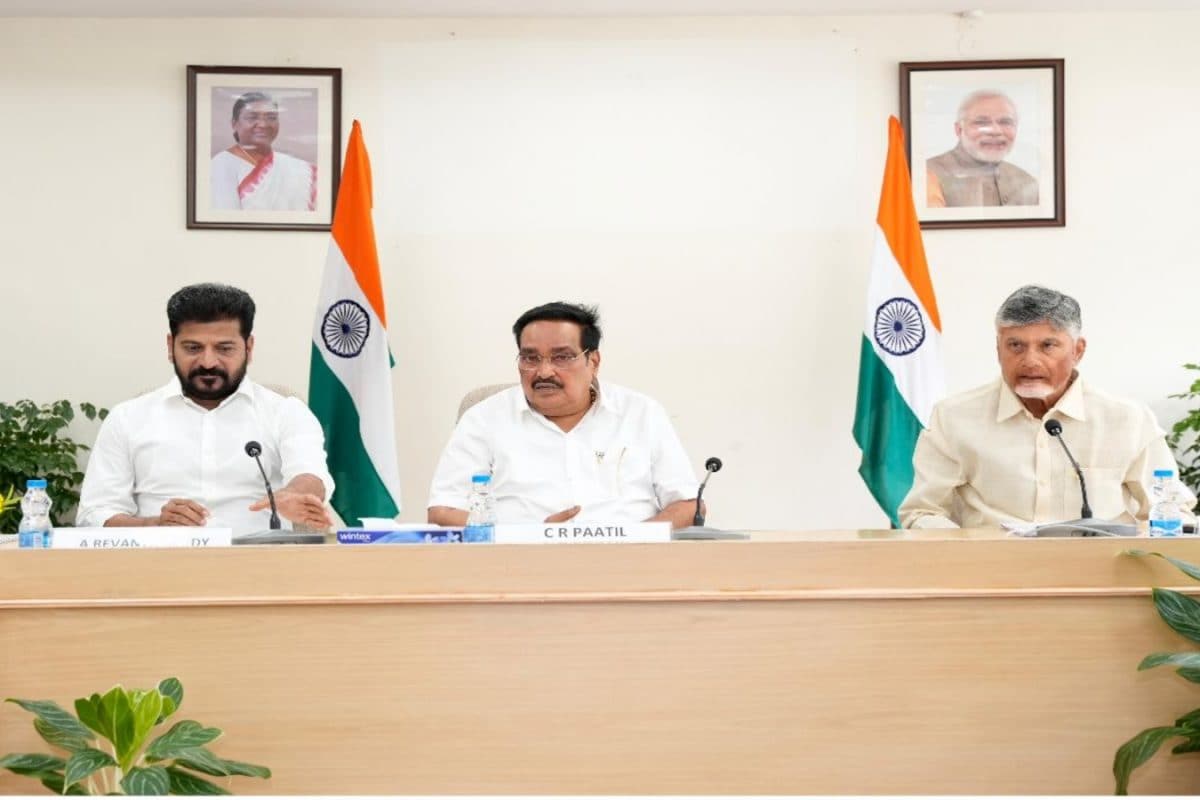

A recent meeting convened by the Union Ministry of Jal Shakti in New Delhi between Andhra Pradesh and Telangana has fostered progress in resolving long-standing water-sharing disputes. The meeting, attended by Chief Ministers Revanth Reddy of Telangana and N Chandrababu Naidu of Andhra Pradesh, signals a renewed commitment to addressing inter-state water issues through dialogue and mutual cooperation.
One of the key outcomes of the meeting was Andhra Pradesh's acceptance of Telangana's proposal to implement telemetry systems across all major water projects and reservoirs. This move is expected to enhance transparency and facilitate real-time monitoring of water flows in the Krishna and Godavari basins. Both states also agreed to take immediate measures to address maintenance issues to safeguard the Srisailam dam. Further decisions included forming a committee with officers and technical experts from both sides to examine outstanding issues related to water projects on the Krishna and Godavari river basins and shifting the Krishna River Management Board (KRMB) office to Vijayawada or Amravati.
The meeting was held against a backdrop of renewed tensions between the two states, particularly following Andhra Pradesh's announcement of the Polavaram-Banakacherla project to divert 200 tmcft of Godavari water to the Penna basin via the Krishna basin. Telangana has strongly objected to the project, citing the lack of mandatory clearances from the Central Water Commission (CWC), the Apex Council, and the Godavari River Management Board (GRMB). Concerns have also been raised by the Polavaram Project Authority and the GRMB, which stated that the project requires a fresh Detailed Project Report (DPR) and either a new water-sharing agreement or tribunal ruling to proceed.
Telangana has been advocating for its rightful share of river waters and is committed to utilizing every drop from both the Krishna and Godavari rivers. Chief Minister Revanth Reddy is expected to urge the Union Minister to expedite clearances for Telangana's irrigation projects on the Krishna river and seek central assistance for their completion. He has also directed officials to find a lasting resolution to the state's long-pending river water issues and to correct past injustices. Telangana's Irrigation Minister, N Uttam Kumar Reddy, sent a detailed letter to the Union Jal Shakti Minister outlining the status and demands related to Telangana's irrigation projects. Revanth Reddy holds the previous BRS administration responsible for failing to secure the state's due share in river waters, highlighting that the BRS had accepted a mere 299 tmcft allocation from the Krishna river, while allowing Andhra Pradesh to draw 512 tmcft, an imbalance he is keen to address.
The Congress government in Telangana has been persistent in its legal, technical, and administrative battle to reclaim the state's rightful share of Krishna river waters. They accuse the previous BRS regime of betraying Telangana's long-term interests by compromising with Andhra Pradesh, allowing large-scale water diversion, engineering failures, and financial mismanagement. The Minister delivered presentations highlighting how the previous Telangana government accepted unjust water-sharing ratios, initially agreeing to a 299:512 TMC formula in 2015 and later to a 34:66 ratio in 2017-18, which remained in effect until 2020. The BRS government even wrote to KRMB stating that the 34:66 formula should continue "since no other basis exists". Chief Minister Revanth Reddy has demanded a reversal of the unfair ratio and is reinforcing Telangana's demand for a 71% share - 575 TMC out of the 811 TMC originally allotted to undivided Andhra Pradesh, based on basin parameters like catchment area, population, drought-prone area, and cultivable land.
The Krishna Water Disputes Tribunal, which was constituted in April 2004 to adjudicate the river water-sharing dispute among Maharashtra, Karnataka, and erstwhile Andhra Pradesh, has been granted another year's extension, with effect from August 1. The terms of reference of the 21-year-old Krishna Water Disputes Tribunal were amended last year to accommodate the water-sharing concerns of Telangana.